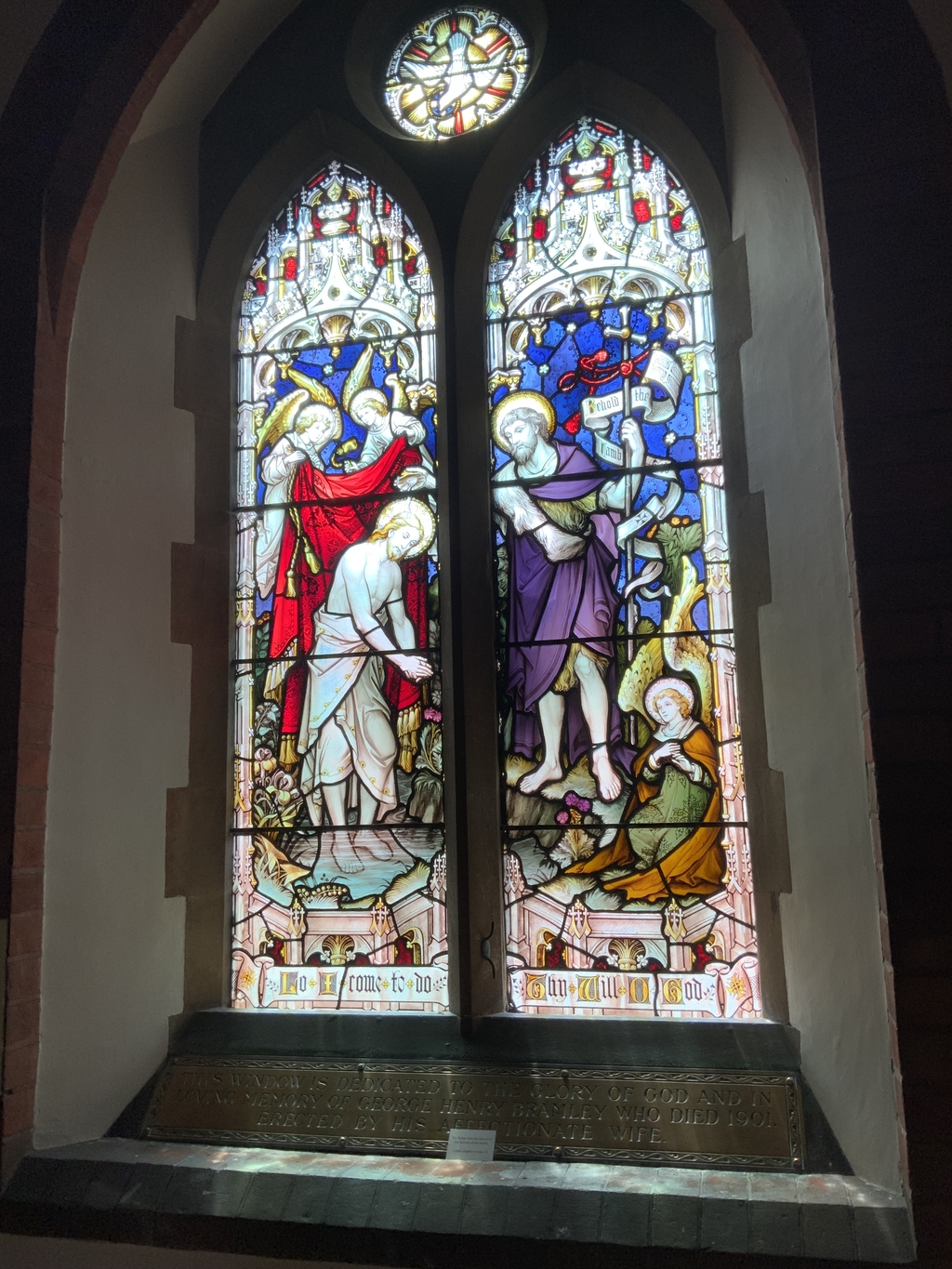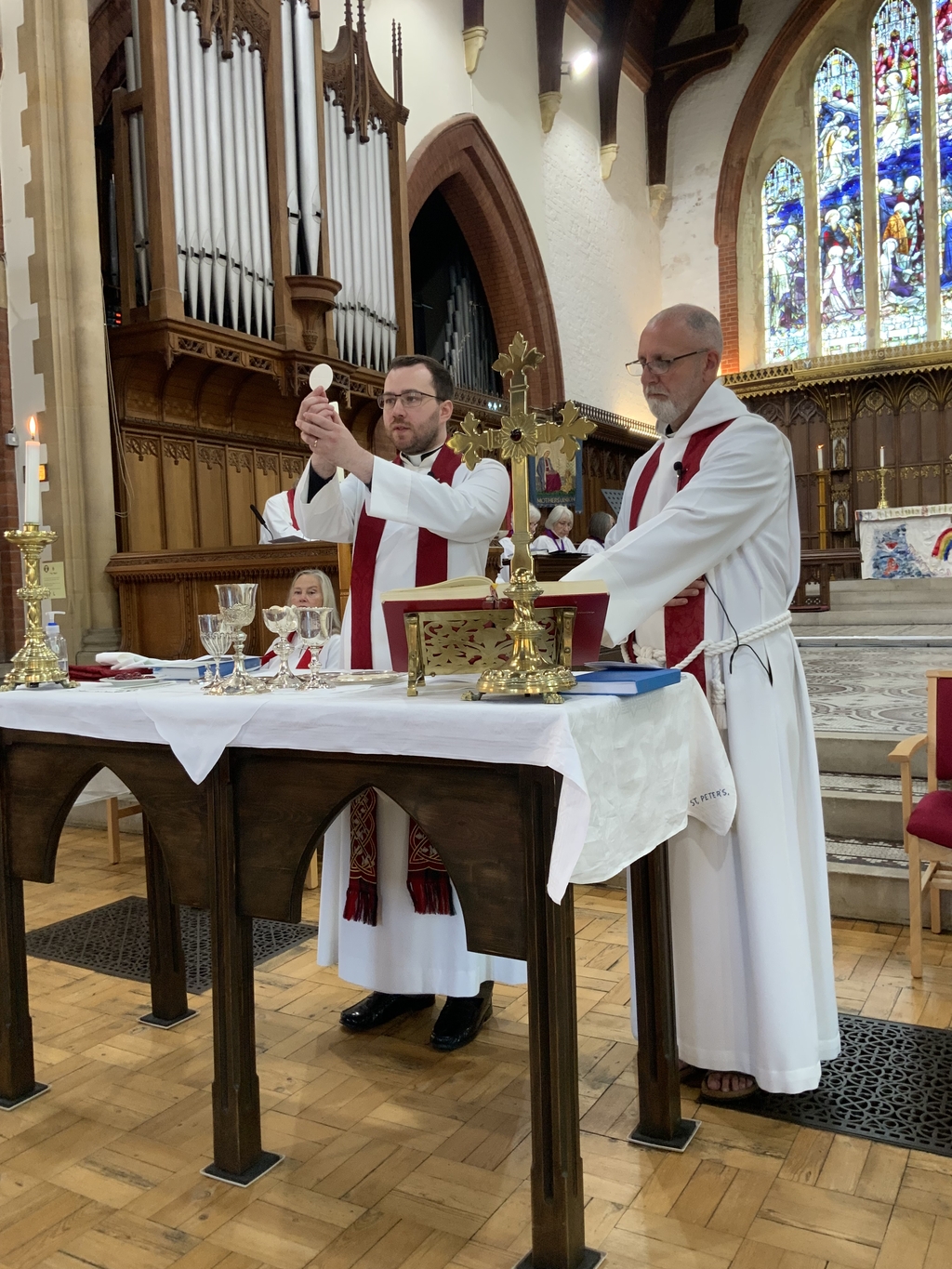Good morning!
Our Gospel reading today comes from John, chapter 20 traditionally an Easter reading, but as we celebrate today, the Feast of St Mary Magdalene, we return to this momentous event in history.
American church historian and popular preacher, Dr Diana Butler Bass, tells a story of how, when she was expecting her daughter, she and her husband had been watching the remake of the film Emma, based on Jane Austen’s eponymous novel. They loved the name so much they christened the child accordingly... As did thousands of other parents that year (of 1997)! Years later, at school, Emma was in a class with two other “Emmas,” and so, very often, stories would circulate, and rumours run amok about what naughty Emma Butler Bass had done – only for it to turn out to have been one of the other Emmas!
Similarly, we all think we know Mary Magdalene, don’t we? Or do we? Because there are rather a lot of Marys in the Gospels, and they can so easily be confused like Emma was.
But none historically more so than Mary Magdalene.
We haven’t got the time to explore all the details now about Mary, nor the implications of the most recent, exciting Biblical scholarship about her.
One thing I can reassure you of, though: Mary Magdalene was not a sex worker (though that would not have been an issue for Jesus), however useful that slanderous accusation has been to misogynistic and patriarchal, power-obsessed Popes, priests and preachers down the centuries as well as an excuse for erotic artistic representations by a large number of…men.
A stunning revelation from very recent, forensic analysis of Papyrus 66, the earliest manuscript of John’s Gospel, is that it was Mary Magdalene not Martha who confessed that Jesus was the Christ, the Son of God in almost the same words Peter had used of Jesus. And as we shall see, for Mary’s confession there will follow her unique witness of the risen Lord Jesus, just as after Peter’s confession he witnessed the transfigured Jesus in resurrection splendour.
Which brings us back to our Gospel extract.
Now on the first day of the week Mary Magdalene came early to the tomb while it was still dark, and saw the stone already taken away from the tomb.
We need to back up a little to get the context.
All the men had fled from the scene as Jesus hung in agony on the Cross. But He was not wholly abandoned: John states earlier “But standing by the cross of Jesus were His mother, His mother’s sister, Mary the wife of Cleopas, and Mary Magdalene.” Faithful females keeping watch, weeping and wondering at the traumatic tragedy unfolding before their tear-drowned eyes.
Jesus dies. He is taken down from the cross and, as had been permitted by Pilate, given to Joseph of Arimathea (a secret disciple) to take away and bury inside a freshly carved tomb in a nearby graveyard.
But John has missed a detail. We have Matthew to thank for filling it in: Matthew notes, after telling of Jesus’ body being wrapped and laid in the tomb: And Mary Magdalen was there, and the other Mary, sitting opposite the grave.
These two Marys, alone, remain to keep vigil.
The only reason they eventually left at all, was probably to be able to keep the Sabbath.
On the following morning, before sunrise, one of them is the first to return: Mary Magdalene. Of course it is! Why? Because the man she had passionately loved; the man she had followed - supporting his ministry from her own resources – the man she had confessed as being the Christ of God and whose teachings she had deeply understood, embraced and embodied in all-out commitment had promised – PROMISED HER at Lazarus’ resurrection - that he himself was the resurrection and the life and that all who believed in him would never die; so he of all people, surely, could not possibly stay dead! So, she came in unwavering faith to see for herself, despite all the apparent evidence of the previous events.
The stone has been rolled back! Jesus’ body has vanished! Mary panics. She runs back to the house where Peter and the disciples are hiding, and where, gasping for breath, she tells them the heart-stopping news: “They have taken away the Lord out of his tomb! No one knows where it is!”
Simon Peter and (probably) John run to see for themselves. Oh! This hysterical woman is right – Jesus’ body has gone. The thought he may have actually risen from the dead, as promised, doesn’t occur to them.
(“For as yet,” John we believe, writes later, “they did not understand the Scripture, that He MUST rise again from the dead.”
Not might! MUST!
But no; They head home, confused and dejected.
Mary, however, remains, weeping with grief. Oh, surely, this is not happening! She has to bend down, then, and take a closer look. She can barely see for the tears blinding her. But she does see two angels, who ask her why she is weeping. Between sobs she explains her dilemma, too stunned to take in the weirdness of this conversation!
Obviously though, it’s all over.
She is turning, slowly, in her dejection and grief, preparing to leave, when through her misty eyes she perceives a human form outside, backlit by the light of the rising sun; a human form she assumes is the gardener or, we might suppose today, the Sexton of this graveyard garden.
He gently and politely asks her why she’s weeping and who she is looking for. She implores him to tell her - if he has removed the body, where he has put it so that she can retrieve it and take it away.
“Mary!” he replies.
Just one word, but what a word! What emotion! What love! What affirmation, what passion! Mary’s heart almost bursts, as realisation floods it! “My Teacher!” she gasps, as she hugs him to herself like she’s never going to let him out of her sight again.
And he explains that everything has changed. The dynamics of their relationship is also changing, never again to be as before. She needs to let go of him; He must ascend to His Father and her Father; to His God, and her God.
What union promises!
A revolution has begun, and she is the first to herald that news – I HAVE SEEN THE LORD!
Nothing would be the same again. Nothing, ever, will be - not for her; not for the disciples; not for you; not for me; not for the whole world.
Because a woman said so.
Hallelujah! Toby Perks. (LLM in training)











